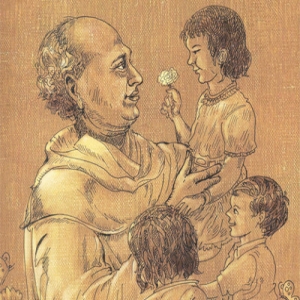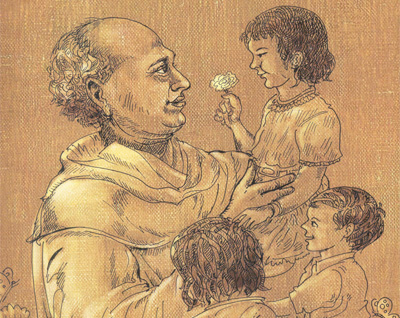

In the 1800s, Kerala's social framework was profoundly entrenched in inequality, the caste system, and social hierarchy. Land ownership was dominated by the higher castes, while the lower castes encountered restrictions and discrimination. They were denied access to education, public services, and temples. Superstitious religious practices and untouchability were prevalent. The Christian missionaries confronted the social structure of inequality and untouchability.
Currently, Kerala is recognised as the most literate state in India. When considering the social and educational reforms in Kerala, one cannot overlook the significant contributions made by a Catholic priest named Kuriakose Elias Chavara.
He was born on February 10, 1805, and died on January 3, 1871. Kuriakose Elias Chavara initiated a movement in Kerala aimed at establishing schools on church premises to make education accessible to a broader population, regardless of caste, colour, creed, or gender. He did not limit his vision to educating only Christians; rather, he planned to educate everyone. He believed that proper education was essential for societal development and that Christian schools should serve as a means of education without discrimination.
At that time, individuals from lower castes were prohibited from reading Hindu scriptures and were not allowed to learn Sanskrit. To address this, he established a Sanskrit school in Mannanam, Kerala, which enabled marginalised communities to access education in Sanskrit and Hindu scriptures.
He also introduced a midday meal program in schools to encourage poor and Dalit children to attend school. Additionally, he sought contributions from Christian families to support the activities and maintenance of the schools.
He founded a boarding house and school for girls, marking a pioneering effort in women's education and empowerment.
He advocated for unity and brotherly love among various religious communities. His intentions were not to convert anyone to Christianity; instead, he aspired to share Christian values of love, equality, and fraternity.
The movement initiated by Kuriakose Elias Chavara was carried on by missionaries in India. Today, Christian missionaries remain active in the fields of education, healthcare, and social reform.
Currently, there are over fifty thousand Christian schools in India, educating more than 25 million students from all faiths.
The role of Christian missionaries is crucial in shaping India's future. People have confidence in the value-based education provided by these missionaries. The quality of education offered by missionary schools is recognised and accepted by all. Despite the existence of numerous private and government schools, many parents prefer to admit their children to missionary schools.
Currently, even good-willed people are being misled by politically motivated Hindu right-wing activists. These activists frequently accuse Christian schools of attempting to convert students. They portray missionaries as entities that threaten Hindu traditions and Indian culture.
If Christian educational institutions had an agenda focused on conversion or aimed at providing biblical education, the Christian population in India would be significantly higher today. In 1951, the Christian population in India was 2.3%, and according to the 2011 census, it stands at 2.3% of the total population.
If the claims of conversion were accurate, and if Christians utilised education as a means of conversion, the percentage of Christians would have risen.
In the current political climate of India, Hindu right-wing activists assert that the government is in power solely for Hindus. In various locations, Christian institutions and their communities face attacks based on unfounded allegations. Christian educational institutions are under threat from these activists, who seek to create issues within these schools to attract media attention.
Missionary schools are environments where students of diverse faiths learn together in harmony. However, politically motivated Hindu activists attempt to disrupt the peaceful environment of these missionary schools. Some of their demands include the requirement for worship of Hindu deities within the schools, financial contributions whenever requested, and the sending of students from the schools to participate in their political programs.
Christians are fundamentally peace-loving individuals, constituting merely 2.3% of India's total population, in contrast to the Hindu population, which stands at 79.8%. Right-wing Hindu activists target Christians due to their own insecurities, despite being the majority.
The Constitution of India grants minorities the right to establish and manage their own educational institutions. In the judgment of TMA Pai Foundation v. State of Karnataka, the Supreme Court of India clarified the terms 'establish' and 'administer,' thereby clarifying the scope of Articles 29 and 30, which pertain to minority rights.
The government has to acknowledge the contributions of missionaries to the Indian society and protect their rights against the politically motivated Hindu organisations, who claim that the present government is only for their protection and they are given all types of immunities, even if they break any law.